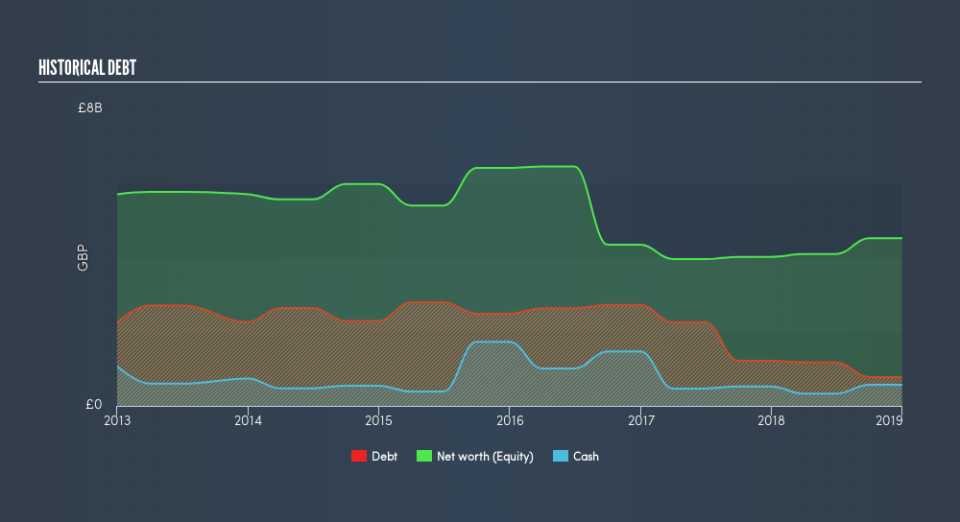Pearson plc (LON:PSON): Financial Strength Analysis

Want to participate in a short research study? Help shape the future of investing tools and you could win a $250 gift card!
Small-caps and large-caps are wildly popular among investors; however, mid-cap stocks, such as Pearson plc (LON:PSON) with a market-capitalization of UK£6.6b, rarely draw their attention. Surprisingly though, when accounted for risk, mid-caps have delivered better returns compared to the two other categories of stocks. Today we will look at PSON’s financial liquidity and debt levels, which are strong indicators for whether the company can weather economic downturns or fund strategic acquisitions for future growth. Note that this commentary is very high-level and solely focused on financial health, so I suggest you dig deeper yourself into PSON here.
View our latest analysis for Pearson
PSON’s Debt (And Cash Flows)
Over the past year, PSON has reduced its debt from UK£1.2b to UK£779m , which also accounts for long term debt. With this debt repayment, PSON's cash and short-term investments stands at UK£568m , ready to be used for running the business. Moreover, PSON has generated cash from operations of UK£462m over the same time period, leading to an operating cash to total debt ratio of 59%, indicating that PSON’s current level of operating cash is high enough to cover debt.
Can PSON pay its short-term liabilities?
With current liabilities at UK£2.1b, it seems that the business has been able to meet these commitments with a current assets level of UK£3.4b, leading to a 1.58x current account ratio. The current ratio is the number you get when you divide current assets by current liabilities. For Media companies, this ratio is within a sensible range as there's enough of a cash buffer without holding too much capital in low return investments.
Can PSON service its debt comfortably?
With debt at 17% of equity, PSON may be thought of as appropriately levered. PSON is not taking on too much debt commitment, which may be constraining for future growth. We can check to see whether PSON is able to meet its debt obligations by looking at the net interest coverage ratio. A company generating earnings before interest and tax (EBIT) at least three times its net interest payments is considered financially sound. In PSON's, case, the ratio of 15.83x suggests that interest is comfortably covered, which means that lenders may be inclined to lend more money to the company, as it is seen as safe in terms of payback.
Next Steps:
PSON has demonstrated its ability to generate sufficient levels of cash flow, while its debt hovers at a safe level. In addition to this, the company exhibits proper management of current assets and upcoming liabilities. This is only a rough assessment of financial health, and I'm sure PSON has company-specific issues impacting its capital structure decisions. You should continue to research Pearson to get a better picture of the stock by looking at:
Future Outlook: What are well-informed industry analysts predicting for PSON’s future growth? Take a look at our free research report of analyst consensus for PSON’s outlook.
Valuation: What is PSON worth today? Is the stock undervalued, even when its growth outlook is factored into its intrinsic value? The intrinsic value infographic in our free research report helps visualize whether PSON is currently mispriced by the market.
Other High-Performing Stocks: Are there other stocks that provide better prospects with proven track records? Explore our free list of these great stocks here.
We aim to bring you long-term focused research analysis driven by fundamental data. Note that our analysis may not factor in the latest price-sensitive company announcements or qualitative material.
If you spot an error that warrants correction, please contact the editor at editorial-team@simplywallst.com. This article by Simply Wall St is general in nature. It does not constitute a recommendation to buy or sell any stock, and does not take account of your objectives, or your financial situation. Simply Wall St has no position in the stocks mentioned. Thank you for reading.

